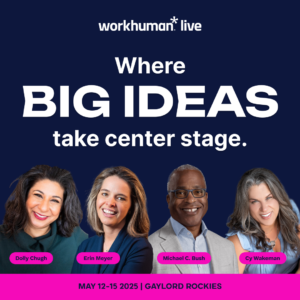Executives Want Employees Back in the Office, But Don’t Really Know Why
August 24, 2023
Returning to the office has been a topic of great interest, debate, and in many cases, tension between the average worker and their manager, leaders, and C-suite executives. But while many of these execs are losing patience with remote work, they don’t usually have a good reason why.
Recently, Mike Hopkins, Amazon’s senior vice president of Prime Video and Amazon Studios, reportedly told staff members in an internal meeting that when it comes to returning to the office, “it’s time to disagree and commit. We’re here, we’re back—it’s working,” he said. “I don’t have data to back it up, but I know it’s better.”
Hopkins was referring to Amazon’s leadership principles, instructing employees to “have [a] backbone, disagree, and commit,” according to reporting from Insider. In other words, once any company decision is made, workers are expected to fall in line, even if they disagree with it – and many do.
Nonetheless, Hopkins added, a return to the office is important because it’s the personal belief of CEO Andy Jassy and other top leaders that “we just do our best work when we’re together.”
Disappointed Amazon workers potentially anticipated this shift. This time last year, CEO Jassy said Amazon had no plans for a mandated office return and instead intended to “proceed adaptively.” That sentiment didn’t last, and Jassy soon joined other tech CEOs like Elon Musk and Sundar Pichai in the pro-in-person work enthusiasm, mandating an office return earlier this year. Note that Amazon does have an exception request process that’s considered on a case-by-case basis.
“The energy and riffing on one another’s ideas happen more freely, and many of the best Amazon inventions have had their breakthrough moments from people staying behind after a meeting and working through ideas on a whiteboard, or continuing the conversation on the walk back from a meeting, or just popping by a teammate’s office later that day with another thought,” Jassy he wrote in an April 2023 shareholder letter. “Serendipitous interactions help it, and there are more of those in-person than virtually.”
This is despite no real data or evidence backing these claims. And it ignores all the downsides of mandated in-office work like extended commutes, additional stress over caregiving responsibilities, and the preferences and needs for many workers who are disabled, for whom remote work has been a boon.
An Amazon spokesperson told Fortune.com that the company has been happy with how the return to office has gone since Amazon mandated it earlier this year: “There’s more energy, collaboration, and connections happening, and we’ve heard this from lots of employees and the businesses that surround our offices.”
Again, “We’ve heard from” is not really data. Some might say it is executive code for “We are more comfortable having people in offices where we can see them.”
While some recent studies have found remote work to be less productive than in-office work, most workers prefer the flexibility of remote-first jobs and jump at the chance to work at companies that offer it.
It’s no wonder why; flexible work means workers have more time for errands, shared moments with family and friends, and saved money. Even as remote job postings decline, they remain extremely popular among applicants. In fact, recent data finds that companies that adamantly refuse to consider more flexible options are the ones disproportionately struggling with retention and turnover.
But yet we continue to see CEOS talk about some magical idea of the “serendipity” and “spontaneity” that leaders like Jassy and JPMorgan’s Jamie Dimon insist make in-person work important.
But workplace experts like Annie Dean, VP of Team Anywhere at Atlassian and Meta’s former director of remote work, said the whole idea is a misplaced concept. “The idea that office attendance will drive creativity is predicated on the idea that the right people are in the office at the right time,” she said. “But if people are more than 30 feet away from you, it’s like they’re not in the same building.”
Fully flexible arrangements, on the other hand, “just appear to be a healthier, happier way to live,” she said.
Any leaders expecting office presence by itself, without being accompanied by a full cultural overhaul to solve existing problems of productivity, collaboration, innovation, or creativity will be sorely disappointed. “Those are all ‘how to work’ problems, not ‘where to work’ problems,” Dean said. “The office won’t solve these problems. New ways of working will.”
At times, the office can be valuable for new hires just learning the organization. Opportunities for mentorship, communication, and learning by observation are difficult to replicate over Zoom, particularly for early-career workers or recent hires, some research has found.
Perhaps that’s why Amazon wants staff back at their desks. Hopkins insisted “it’s working” —even though he had “no data either way” on the comparative effectiveness of in-person work.
For workers at companies like Amazon, mandated return to in-person work often feels like organizations have learned nothing at all from the three years of pandemic-driven disruption. And many will have to choose between going back to the old ways of working, that really didn’t work for so many of them.
We will continue to follow how work and workplaces are evolving here on the HR Happy Hour Media Network.
To listen to an audio version of this story, please check out The Workplace Minute from August 8, 2023.
How we can help
Led by Trish Steed and Steve Boese, H3 HR Advisors harnesses over 40 years of experience to delivery HCM insights and guidance to global organizations.
H3 HR Advisory services
By leveraging technology, analytics, and our deep industry knowledge we can help you to reposition your workforce and ensure that you have the right people with the right capabilities in the right roles to positively impact the growth of your business.
HR Happy Hour Podcast Network
Created in 2009, The HR Happy Hour Show is hosted by Steve Boese and Trish Steed and is the longest continuously running internet radio show and podcast on Human Resources, HR Technology, Talent Practices, Workplace and Leadership topics.
H3 HR Speaking Services
We work closely with every client to customize your content - keynotes, webinars, research, infographics, and buyer’s guides - to inspire, educate and inform the audience enabling you to reset and realign your organization for a talent-led breakthrough.
Get in touch
Talk to us today and find out how we can help you and your organization leverage HCM technology to attract, onboard, retain and manage top talent.




